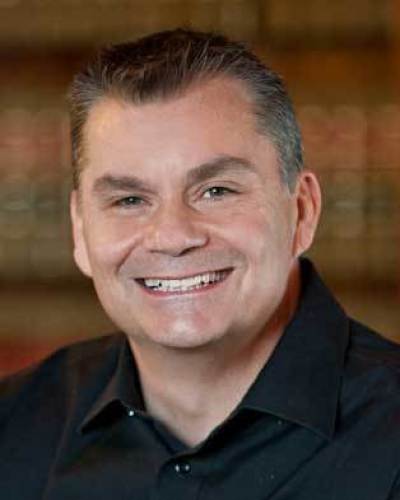Does your faith have to ‘work’?
While teaching a class on the topic of saving faith a few years back, a man took strong objection to a point I made about repentance and the change in life that takes place in a believer once they become a Christian. He aggressively argued that a person need not show any signs of moral transformation because Romans 10:9 says all a person has to do is confess Jesus as Lord and believe God raised Him from the dead to be saved. Anything taught to the contrary, he said, was works-based salvation.
Is that true? Can a person confess Christ, consistently live contrary to the faith, and be truly saved?
A long and sad history
The teaching of what’s technically referred to as antinomianism has a rather long and sad history. Antinomianism means “against law” and has been taught both outside and inside Christianity.
In the ancient world, the Greeks taught both processism, which said everything was in process/flux and so no law could ever be absolute, as well as hedonism that stated pleasure rules and pain is to be avoided. In more modern times, skepticism/moral relativism has preached a more subtle form of antinomianism, saying that moral laws are not transcendent or timeless but instead more subjective and always changing.
The antinomian way of thinking infected the church early on, especially through gnostic circles where the teaching was that all spirit was good, all matter was bad, and therefore if a person confessed Christ, their spirit was saved and it didn’t matter morally what they did in the body.
Needless to say, the Bible condemns antinomianism in many places. Paul says plainly, “What shall we say then? Are we to continue in sin so that grace may increase? May it never be! How shall we who died to sin still live in it? (Rom. 6:1-2). John states the same thing when he writes, “Everyone who practices sin also practices lawlessness; and sin is lawlessness” (1 John 3:4).
A living or dead faith
While the Bible is clear that we’re not to live in sin, does a person’s faith have to ‘work’ for it to be authentic? In other words, must there be some inward/outward set of evidences that indicates someone has really been born again?
The best chapter in Scripture that settles the matter is James 2, where the Lord’s brother asks this rhetorical question: “What use is it, my brethren, if someone says he has faith but he has no works? Can that faith save him?” (James 2:14). While the obvious answer James is seeking is ‘no’, he goes on later to say, “For just as the body without the spirit is dead, so also faith without works is dead” (vs. 26).
Note that James isn’t saying works save us, but is instead declaring that changed affections and godly actions are confirmation of real saving faith (see vv. 21-24).
When I brought this set of Scriptures up to the person in my class, it gave him pause, but he still insisted that it was works based salvation. In my opinion, he was failing to understand two things: (1) “the analogy of Scripture”, which says one must interpret doctrine using the whole Bible vs. just specific verses, and (2) the distinction between logical and causal conditions.
Number one is understood by many Christians, but few understand the second so let’s discuss that in more detail.
The logical vs. causal condition of faith and works
In the study of logic, you’ll find the concept of a necessary condition, which is a condition that must be present for an event to occur. A necessary condition may be either logical or causal in nature.

Christian apologist William Lane Craig uses the following illustration to define the difference between the two: If you jump in a swimming pool you will get wet. Jumping in the swimming pool is a logical necessary condition for getting wet and getting wet is a logical necessary condition of jumping in the swimming pool.
But getting wet is not a causal condition of you jumping in the pool; i.e. no one would say that getting wet causes you to jump in the swimming pool.
When it comes to faith and works, getting saved is a causal condition for performing good works once a person is born again. And, good works are a necessary condition for being saved from a logical standpoint.
But works don’t save you from a causal standpoint any more than getting wet causes you to jump in a swimming pool. The Bible makes it clear that a person is saved via faith alone (e.g. Eph. 2:8-9), but that the faith that saves is not alone – a life change occurs where “if anyone is in Christ, he is a new creature; the old things passed away; behold, new things have come” (2 Cor. 5:17).
In his great work on the subject of saving faith, A Treatise Concerning Religious Affections, Jonathan Edwards writes as bluntly as James when he says: “Wherever a profession of conversion is not accompanied by holiness of life it must be understood that the individual concern is not a Christian.”
Savior and Lord
Make no mistake, espousing the idea of true saving faith needing the evidence of godly affections and good works is not a popular one today. Stating that fact will not be accepted most times and will likely cause you to lose listeners as it did me with the man who argued about the matter in my class (he never returned).
At issue is the fact that everyone loves the idea of a savior who rescues but few want a lord who makes demands. But it’s like A. W. Tozer said: “The Lord will not save those whom He cannot command. He will not divide His offices. You cannot believe on a half-Christ.[1]”
One of the beautiful things about salvation is that acknowledging Jesus as both Savior and Lord comes naturally because the heart and mind are both truly transformed. We are gifted with a faith that results in good works that are the logical outworking of faith, but not the cause of it; they are the evidences of saving faith, but are not a means of it.
And in that regard, yes, a person’s faith must ‘work’ to be genuine.
[1] A. W. Tozer, I Call It Heresy! (Harrisburg, PA: Christian Publications, 1974), pg. 18.
Robin Schumacher is an accomplished software executive and Christian apologist who has written many articles, authored and contributed to several Christian books, appeared on nationally syndicated radio programs, and presented at apologetic events. He holds a BS in Business, Master's in Christian apologetics and a Ph.D. in New Testament. His latest book is, A Confident Faith: Winning people to Christ with the apologetics of the Apostle Paul.



























